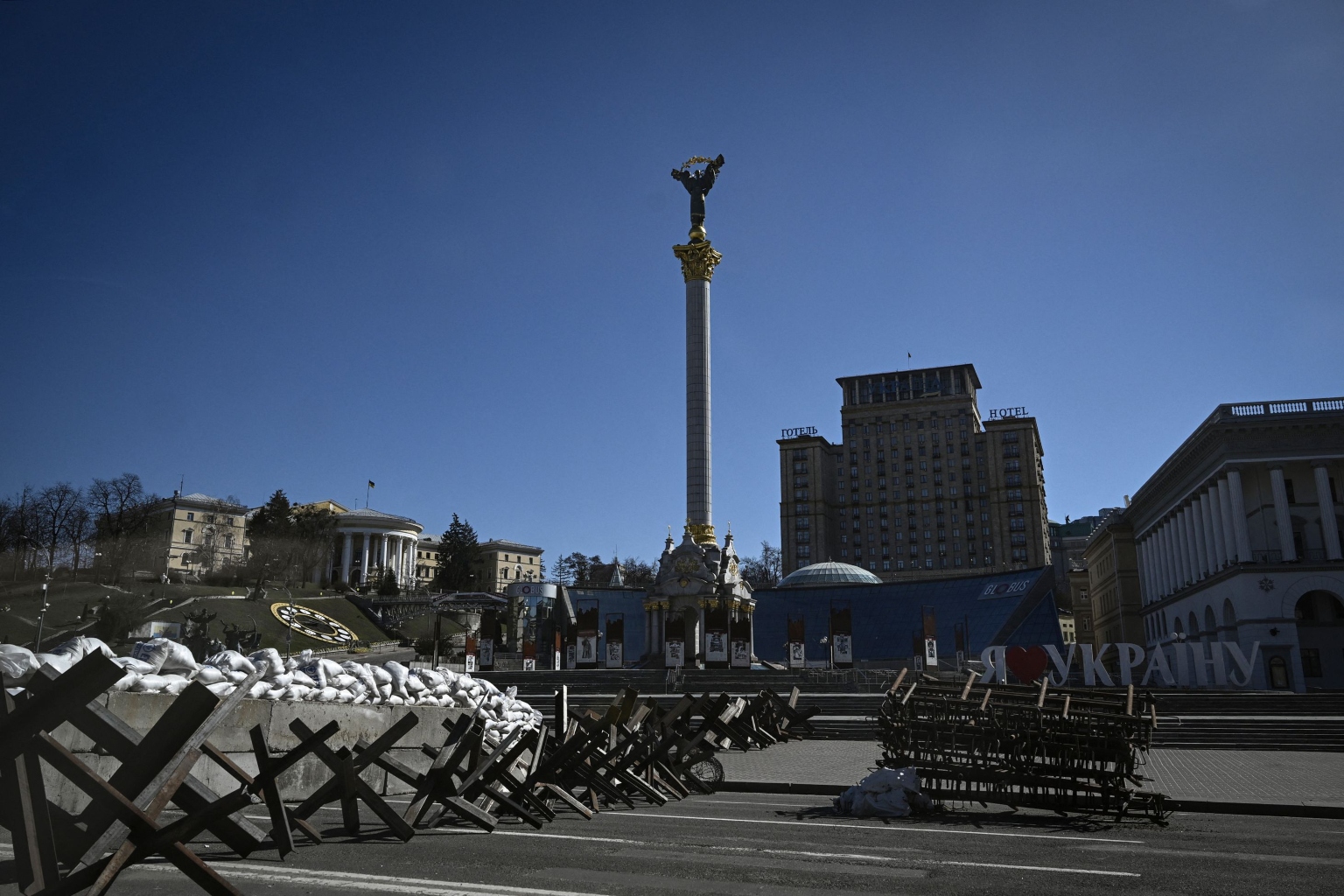Fortress Kyiv holds breath ahead of feared Russian assault
Sign up now: Get ST's newsletters delivered to your inbox

Kyiv is a ghost town, with air sirens and distant sounds of explosions regularly punching through the silence.
PHOTO: AFP
KYIV (AFP) - Filled with mountains of sandbags and weapons at the ready, Kyiv is waiting.
On day 27 of Russia's invasion, the advance of troops north-west and east of the Ukrainian capital seems to have stalled and residents are taking advantage of a curfew to catch their breath and prepare.
With businesses ordered closed and residents told to stay home, Kyiv is a ghost town, with air sirens and distant sounds of explosions regularly punching through the silence and the golden cupolas of the landmark Saint Sophia Orthodox cathedral shining in spring sun.
Kyiv mayor and former world boxing champion Vitali Klitschko imposed the curfew from Monday (March 21) until Wednesday morning, telling civilians to seek cover in bomb shelters if air defence sirens go off.
"For people who have been constantly under pressure since the start of the invasion, it's a chance to breathe a little," says Mr Alexis, who taught German before the war and guides an AFP team through the city.
"At any rate, they are traumatised, they don't really want to go out."
Many of Kyiv's 3.5 million residents, mostly women and children, have fled the capital since Russia invaded on Feb 24.
Those that remain are mostly the elderly and those who will defend the city: soldiers as well as those who enlisted in volunteer defence units.
Mr Maxym Kostetskyi, a 29-year-old lawyer-turned-volunteer fighter, says the curfew feels "like a break," especially with the warmer spring weather.
"We don't know if the Russians will keep trying to encircle the city, but we are much more confident, morale is high," he adds.
In the deserted streets, only white police cars with blue stripes and a few military trucks and rare civilian vehicles drive by, full of armed men in military fatigues.
Kyiv is dotted with checkpoints made of concrete blocks. On them is written in spray paint: "Glory to Ukraine," "Stop!" as well as curses and demands that Russian troops get out.
On Kyiv's northern, eastern and western edges, alleys and intersections are filled with walls of sandbags and anti-tank hedgehogs, made of bars welded into crosses.
A forest on the northern outskirts of the city, where residents once went mushroom-picking and dined in a fine Argentine restaurant called "Rancho el Gaucho" has been turned into trenches where fallen soldiers are buried.
Ms Olga Alievska, a 38-year-old marketing specialist, has remained in Kyiv, hopeful that "the Russians do not want, and above all cannot take Kyiv".
"For now, they have been bombing military facilities mostly, not civilians," Ms Alievska says.
But after Russian strikes destroyed a state-of-the-art shopping mall here on Sunday, killing eight people, fears are running high.
But in the heart of the capital, on the hills overlooking the spectacular Dnipro river, where only two bridges remain open to traffic, war seems almost distant.
At the foot of the 11th century Kyiv-Pechersk Lavra, known as the Monastery of the Caves, soldiers and weapons less visible.
On Kyiv's left bank, ignoring the curfew, a woman in her sixties walks her dogs near a solemn memorial to the victims of the Great Famine of the 1930s, in which millions of Ukrainians perished.
The famous Maidan Square, the scene of two of Ukraine's pro-Western revolutions, is also filled with heaps of sandbags.
"Today, we are optimistic, even if we don't have a choice," says Mr Kostetskyi, the volunteer soldier. "We are protecting our country against someone, against Vladimir Putin, who just wants to destroy our country."


